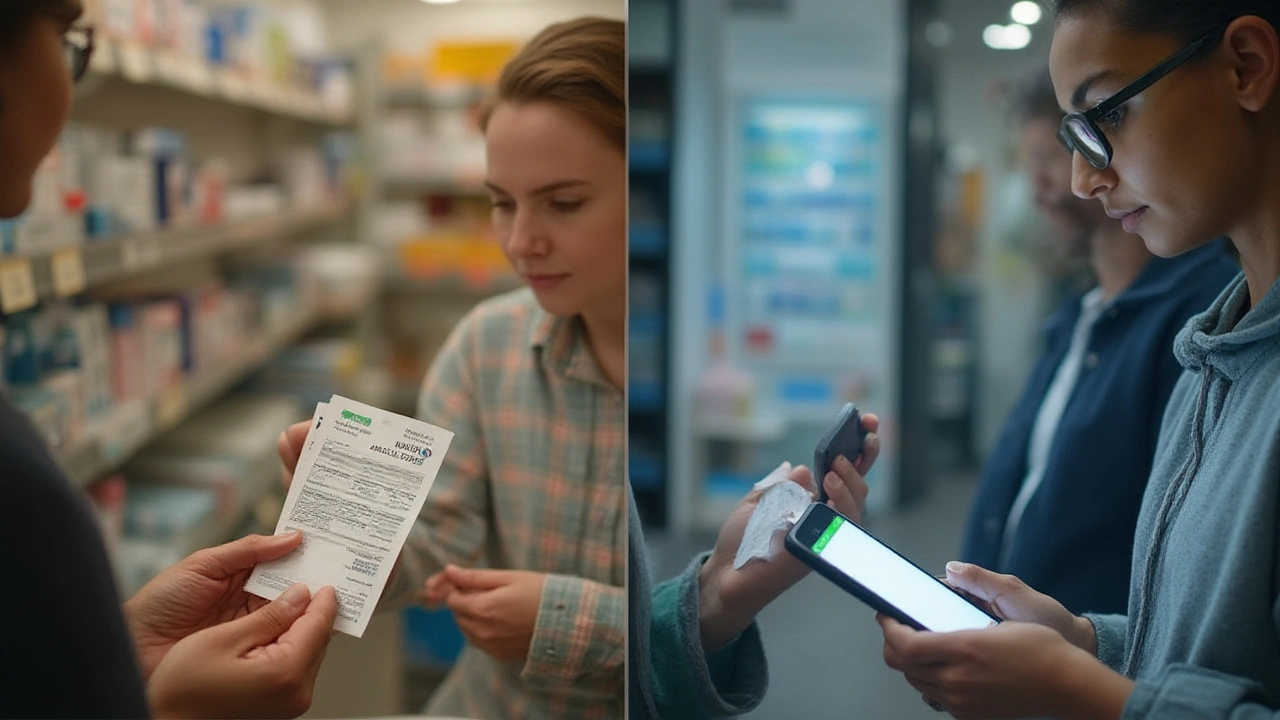Pharmacy coupons: Save on prescriptions and avoid scams
High drug prices are real. Pharmacy coupons can cut costs fast, but not all offers are safe or worth your time. Know how coupons work, where they come from, and simple checks to spot fakes.
Where to find legitimate pharmacy coupons
Start with the drug maker. Manufacturer savings programs often give the biggest discounts for brand-name meds. Check the official site or call the company. Many pharma coupons need a patient ID or enrollment, so follow the sign-up steps exactly.
Use reputable coupon sites and discount cards too. Good ones include SingleCare, GoodRx, and some pharmacy chains' own savings pages. These services compare prices and show coupon codes you can use in-store or present at pickup.
How to maximize coupon savings safely
Always read terms. Coupons can limit quantity, months of use, or require a specific pharmacy. If a coupon seems to offer unrealistic discounts—like free controlled drugs—it's a red flag. Don't share personal or payment details with unknown sites.
Match coupons with insurance when allowed. Some insurers accept manufacturer coupons for co-pay assistance on brand drugs, while others don't. Ask your pharmacist if using a coupon will change how your insurance is billed.
Watch out for shipping and extra fees with online coupons. A low drug price can vanish after high shipping or handling charges. Compare the final total, not just the list price.
For generics, coupons add little. Generic drugs are already cheap. Instead, use price comparison tools or buy a 90-day supply when sensible—it's often the best value.
Keep records. Save coupon codes, screenshots, and receipts in case of billing errors. If a pharmacy refuses a valid coupon, ask to speak with a manager or contact the coupon provider for proof.
Final quick checklist: verify source, read limits, compare final price, check insurance rules, and keep proof. Small steps like these can save dozens or even hundreds of dollars on prescriptions without risking your safety.
Example: a monthly asthma inhaler might list $300 retail. A manufacturer coupon or GoodRx code can cut that to $30–$60 at many pharmacies. Meanwhile, a generic inhaler often costs under $50 without coupons. Always check both routes.
Patient assistance programs help people with low income. Big drug companies run these programs for specialty meds. They require paperwork but can reduce copays or provide free samples. Your doctor's office can help you apply.
Online pharmacies sometimes publish coupon codes at checkout. Use trusted international pharmacies with clear credentials: a physical address, pharmacist contact, and secure payment. If a site asks for a prescription for a prescription-only drug and then sends meds without asking, that's a scam—avoid it.
Talk to your pharmacist about cheaper alternatives. Pharmacists know which generics work like brand drugs and can suggest therapeutic swaps. Small changes—like changing pill shape or dose timing—can make a medication cheaper or eligible for a coupon.
If unsure, call the coupon provider before using it. A quick call saves money and avoids headaches later. Try it today.

